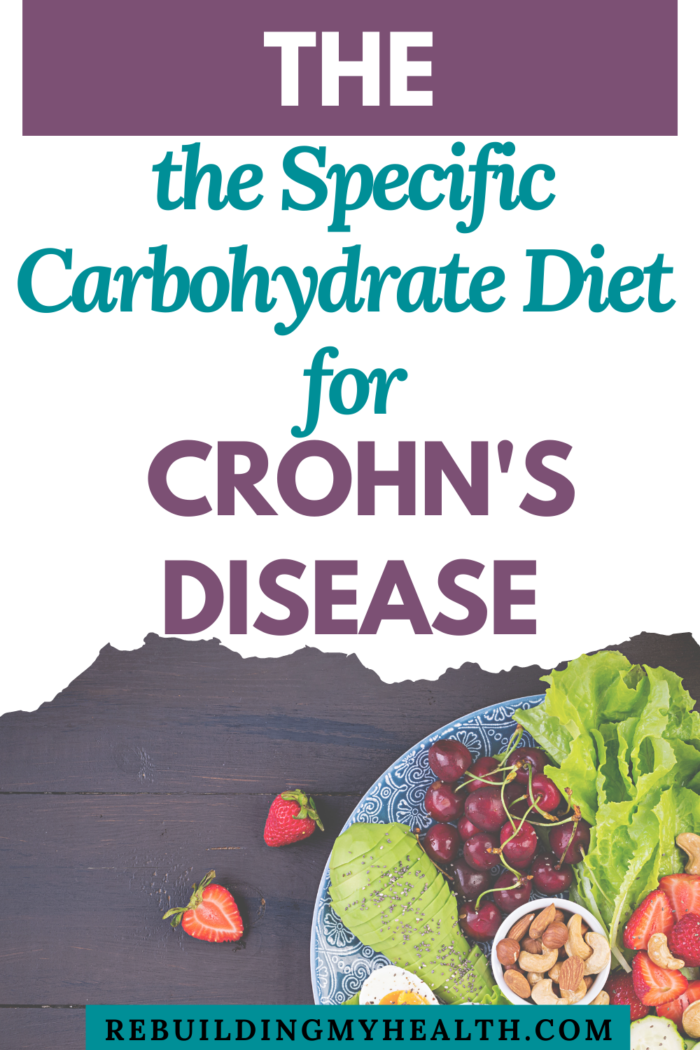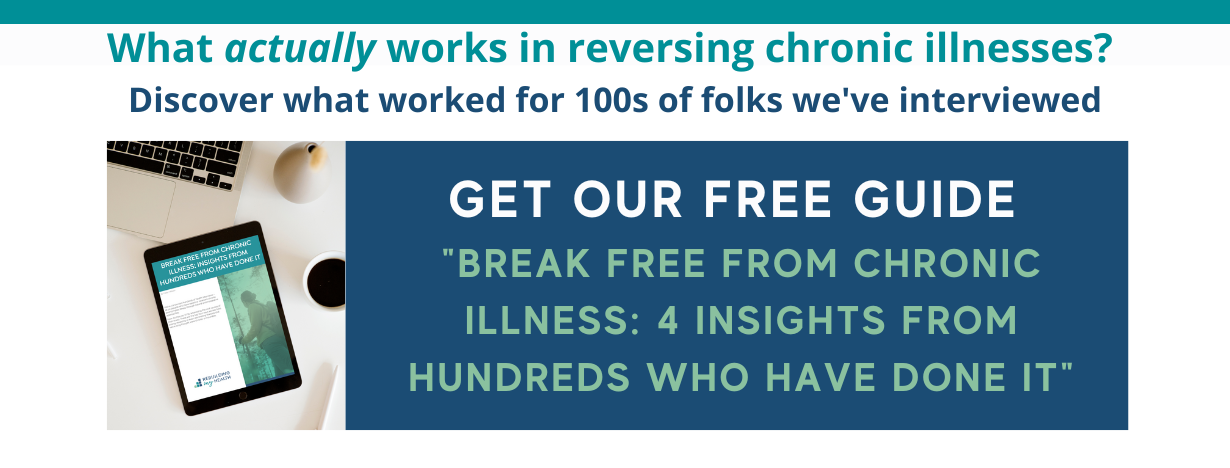San Diego Mom Celebrates Remission from Crohn’s Disease, Thanks to Diet
“In order to be successful with using diet to manage disease, you also have to be willing to commit to your mental and physical well-being. It’s definitely challenging, but worth not being chronically sick and stuck in the hospital!”
– Briana Songer
As a 15-year-old in Spokane, Washington in the mid-‘90s – newly diagnosed with Crohn’s disease – Briana Songer had little choice but to follow her doctor’s orders.
The problem was, the prescribed steroids and immunosuppressants didn’t alleviate the pain of the chronic, inflammatory digestive disorder.
For three years, she kept with the medications and ate the way she always had. But by age 18, Briana had had enough. When she received her senior photos and saw her “moon face,” bloating caused by steroids, she threw out all her meds.
It was, at least, a way for her to feel more in control of her health care.
“I was angry that nothing was working and nobody was helping me,” she says. “I was on my own with the disease and always have been. My mom worked two jobs and didn’t have the resources to figure out diet. And back then, there was no Internet where you could find this information. We went to the doctor and that was it.”
Crohn’s Disease Chases Her – Around the World
Doctors uncovered Briana’s Crohn’s disease after an emergency appendectomy at age 15. The pain had continued well after the surgery, leading to further testing and her diagnosis. She now suspects she may never have had appendicitis at all, but rather a Crohn’s flare, especially given that her Crohn’s is located near the appendectomy site.
After ditching her meds toward the end of high school, Briana essentially ignored the disease through her late teens and 20s. She went on to college, and after graduation, traveled and lived abroad. But Crohn’s disease, unfortunately, followed her wherever she went.
“I had flares 3-4 times a year,” she says. “I would be in the hospital for a few days. I didn’t understand why I was different from my friends, or why I was constantly in pain from eating.”
Eventually, a gastroenterologist (GI) convinced her to go back on medications, but the flares continued. During the worst one, while in South Korea, she reached a crisis state: doctors advised her – through a translator – that she would need an intestinal resection immediately to address the pain, and possibly even save her life.
They removed 30 centimeters of her large intestine, requiring a 45-day hospital stay to recover. That resolved her Crohn’s disease – for a while.
“Everything went really well and I felt amazing after,” she says. “I still had Crohn’s but for the first time in 10 years, it wasn’t active.”
She remained on medication, the immunosuppressant Pentasa, and tried to avoid heavy carbs and fast foods.
Inevitably, the flares began again, this time while she was teaching English in Colombia. She tried biological medications such as Humira, but she built up a tolerance to it within six months – so the symptoms returned. Doctors immediately switched her to Remicade, but she soon started developing other side effects, like psoriasis, joint paint and vision problems.
“Remicade was masking my symptoms but not treating the disease,” she says. “I wanted to get to the core of the problem to eliminate all my symptoms and go into remission, but I was scared and not sure how I was going to do that. So I continued taking the Remicade because at least it had reduced the symptoms,” she sighs.
‘I Felt Amazing’
After one year of being on Remicade, Briana found herself sitting in her gastroenterologist’s office, “I have to take you off the Remicade for a few months,” he explained. “I’m worried you’ll develop an immunity again.”
Briana was devastated, worried she would flare again. “At that point, I was determined to find an alternative,” she says. “I was fed up with doctors who didn’t have my best interest in mind. And I wasn’t going to let this disease control my life any longer.”
Years earlier, Briana’s grandmother had told her about a book related to diet and digestive disorders, “Breaking the Vicious Cycle” by Elaine Gottschall.
“At the time I was only in my early 20s, so I disregarded it,” she says. “I thought there was no way a diet could help. Moreover, I wasn’t in a state to truly overhaul my mental and physical health.I was dealing with so many other personal issues, and those had to be worked out first.”
Suddenly Briana recalled the book. She immediately left the doctor’s office and researched the diet for three days straight. She learned Gottschall had successfully helped her own daughter reduce the symptoms and severity of an intestinal disorder. Gottschall named the grain-free, sugar-free diet the Specific Carbohydrate Diet (SCD).
“I thought, ‘I might as well try it while I’m off the biologicals,’” she says. “I read several success stories of people who had Crohn’s and had gone into remission with the diet. I really had nothing to lose (except more intestine!). So the journey began.”
But she soon found it was far more difficult than taking medication. “First there’s the detox, which was the hardest part,” she says.
With a focus on meats and vegetables, and no processed food, the diet demands more time to cook and, according to Briana, three times the grocery budget. As a new business owner, Briana at times had to prioritize healthy food over other purchases.
Living in Colombia made it even more challenging. Like most places, locals celebrate and socialize with heavy carbs, alcohol and sugar, and much of it processed.
“Everyone there thought I was nuts,” she says. “Every event revolves around food and drinks, especially rum. But I stuck with it, and just two weeks in, I felt amazing.”
Briana began a food, mood and bowel tracking diary to have data to show the healthy improvements. Two months later, she had enough data to show her doctor how much better she was doing.
As she started showing her GI a reduction in bowel issues and pain, and elevated energy and mood, he cut her off shouting, “You don’t listen and you’re a bad patient. If you don’t go back on the Remicade, I’ll see you back in the office with a flare-up in less than three months!” So she got up and walked out, never looking back.
Briana was resolute; she would stick with the diet.
No Sign of Crohn’s Disease
The diet, in fact, worked better than anything Briana had ever tried. Her pain and flares subsided, and six months after starting the diet, she was off all medication.
Nearly four years later, Briana now lives in San Diego and continues the diet – without medications – because her health has never been better. She hasn’t had a flare in four years and has been largely symptom-free.
When she finally returned to see a gastroenterologist, lab tests revealed the unbelievable – her body showed no signs of Crohn’s disease. Her disease was in remission.
“The doctor said, ‘Based on the blood work, you wouldn’t even know you had Crohn’s,’” she says.
SCD: Worth the Work
With those results, Briana, remains dedicated to the diet and credits it with helping her live a full life. In 2017, she gave birth to a healthy baby boy. While a previous abscess did return after the pregnancy, she has kept it under control.
“I have a lot more energy, and am more optimistic and happy because I’m not in pain,” she says. “I can be more social, go out more and be more productive at work because I don’t have to go the restroom every 10 minutes.”
While she considers the diet an undeniable success, not everyone she meets does. More than one doctor has questioned that the diet alone could deliver these results and that she should remain med-free. With each doubting doctor, she has moved on.
Currently, she sees a holistic gastroenterologist, Dr. Vijayalakshmi Pratha in San Diego.
“I’ve never had a doctor like her,” she says. “She was the first doctor to ask me about not only my medical history, but my mental history. She believes that your past experiences affect your health systemically. To get better in the present, you have to resolve negative or traumatic pasts in a healthy way. We also talk about the present, and she asks about my job and stress levels, which can trigger Crohn’s disease. She gets to know me as a person, not a patient.”
Dr. Pratha is part of Briana’s hand-picked wellness team, which also includes a nutritionist, therapist and fitness center. “In order to be successful with using diet to manage disease, you also have to be willing to commit to your mental and physical well-being. It’s definitely challenging, but worth not being chronically sick and stuck in the hospital!” Briana exclaims.
While Briana remains off all prescription medication, she advises others to do what’s best for them. At times, she says, medication has helped calm critical flares and bring back stability.
As a working mom, adhering to the diet strictly can be tough, but Briana says it’s worth it to stick to it. She’d go without eating before cheating.
“The biggest challenge is the constant cooking,” she says. “You can’t just go to the store and pick up pre-made stuff because you don’t know what’s in it. It takes a lot of planning and prep.”
To simplify meals, she hires a college student to cook with her for a few hours once a month and they freeze all the meals. As for dining away from home, she eats before parties and is usually able to find meat and vegetables when dining out.
She’s found her body can tolerate a few foods not on the “legal” list for SCD, including white rice, rice noodles and sweet potato. She just watches her body carefully to see how she reacts to foods.
For others considering SCD or other diets for digestive challenges, she stresses that it’s more than a diet.
“It’s not just a diet but a completely new lifestyle,” she says. “You have to be ready to really commit and change your life because there’s no going back. You have to change your mindset and accept that you have this disease, and then accept that you have to do something about it. Trust yourself and believe in yourself that it’s going to work.”
If you enjoyed this story, you might also like: Physician Assistant Finds Freedom from Pan Ulcerative Colitis.
The information on this site is for educational and inspirational purposes only and is not intended to replace the advice of qualified professionals. Keep in mind that what works for one person may not work for another. Always consult your healthcare practitioners before beginning new approaches or treatments. Some links on Rebuilding My Health may be affiliate links. This means that we may receive a commission - with no additional cost to you - if you make any purchases using those affiliate links. Rebuilding My Health is a participant in the Amazon Services LLC Associates Program. Learn more.



